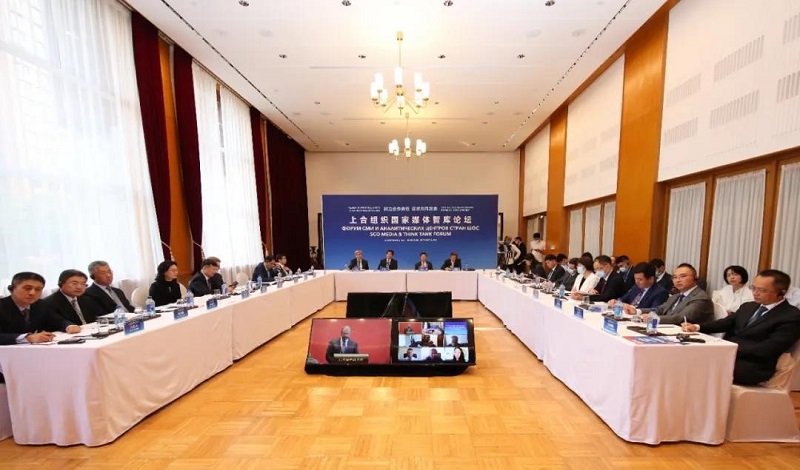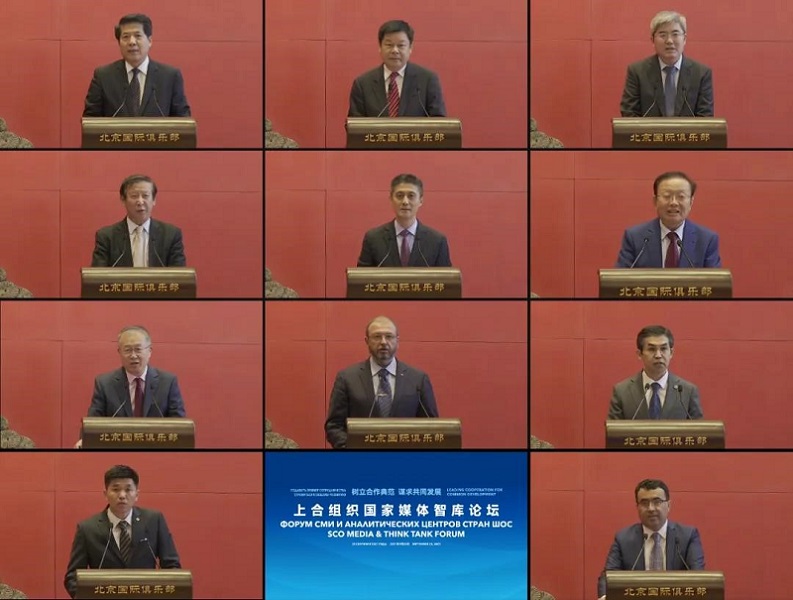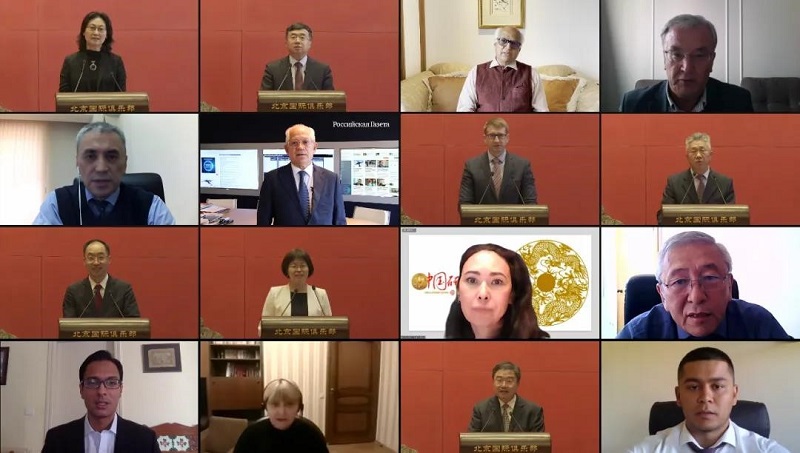The Shanghai Cooperation Organisation (SCO), now in its 20th year, has embarked on a new journey with new developments. The eight-member Eurasian security, economic and political body launched procedures to admit Iran as its ninth member at its summit in Dushanbe, Tajikistan, on September 17, and Saudi Arabia, Egypt and Qatar as new dialogue partners, broadening its scope.
President Xi Jinping outlined a five-point proposal for the future direction of the bloc at the summit, emphasizing enhancing cooperation, common security without brooking foreign intervention, openness and integration.
The Dushanbe summit was followed by a forum held virtually on September 23. The SCO Media & Think Tank Forum hosted by the China International Publishing Group (CIPG) and the SCO Secretariat brought together ambassadors, scholars and media representatives to discuss the cooperation for common development among the SCO member countries.

The SCO Media & Think Tank Forum kicks off at the Beijing International Club on September 23.
SCO Secretary General Vladimir Norov sent a message to the forum, saying the Dushanbe Declaration adopted at the recent summit lays down the common position of the organization on key political issues in the region and beyond, and will be the guideline for the SCO’s future work.
Wei Jianguo, former Chinese vice minister of commerce, said the next five years will be the best opportunity for the SCO to pursue win-win cooperation for several reasons.
As the bloc has grown beyond its first five founding members, the trade within it has expanded as well. For example, trade between China and Russia has exceeded US $100 billion for three consecutive years. E-commerce and the digital transformation of trade is a major factor, with nearly 2 billion people buying specialties online from other member states. Wei said the SCO member states will carry out more investment and cooperation under the Belt & Road Initiative in segments such as infrastructure.
CIPG President Du Zhanyuan commented that over the past two decades, guided by the “Shanghai Spirit,” the core value of the SCO, featuring mutual trust, mutual benefit, equality, consultation, respect for diversity of civilizations and pursuit of common development, the regional organization has successfully explored a new path of cooperation and development.
Dmitry Lukyantsev, Minister-Counselor of the Russian Embassy in China and Russia’s permanent representative to the SCO Secretariat, said cooperation within the SCO is one of Russia’s foreign policy priorities. It is stipulated in Russia’s foreign policy regulations and overseen by Russia’s top leadership.
Nurlan Akkoshkarov, Minister-Counselor of the Kazakh Embassy in China and Kazakhstan’s permanent representative to the SCO Secretariat, said at the forum that the different projects and programs initiated by his country for regional security and joint development includes a mechanism for cooperation on border issues. This enables identification, prevention and restraint of acts of terrorism, separatism and extremism through the Internet.


Attendees participate in the SCO Media & Think Tank Forum via video link from China and abroad. Photos courtesy of China Pictorial
Facing the complexity and volatility in the international situation, the SCO has been expanding people-to-people exchanges. Programs organized by the media and think tanks have become an important bridge to promote communications. Xue Lisheng, deputy editor-in-chief of China Internet Information Center, talked about the Chinese media outlet’s cooperation with its Russian counterparts.
It has been learned from the forum that Rossiya Segodnya, a Russian news agency, has reached cooperation agreements with 17 Chinese media outlets to exchange news content. They also organize courses and seminars for students majoring in journalism and media staff from different countries to exchange experiences and develop further contacts.
Think tanks also represent a key part of the regional cooperation. Shavkat Alimbekov, chief specialist of the Department of Economic Development and Liberalization of Uzbekistan’s Development Strategic Center, said the center had organized roundtable conferences and seminars with the Institute of Russian, East European & Central Asian Studies of the Chinese Academy of Social Sciences and the China Institute of International Studies. Think tanks are playing an increasingly important role in enhancing communication and promoting cooperation among SCO member countries.